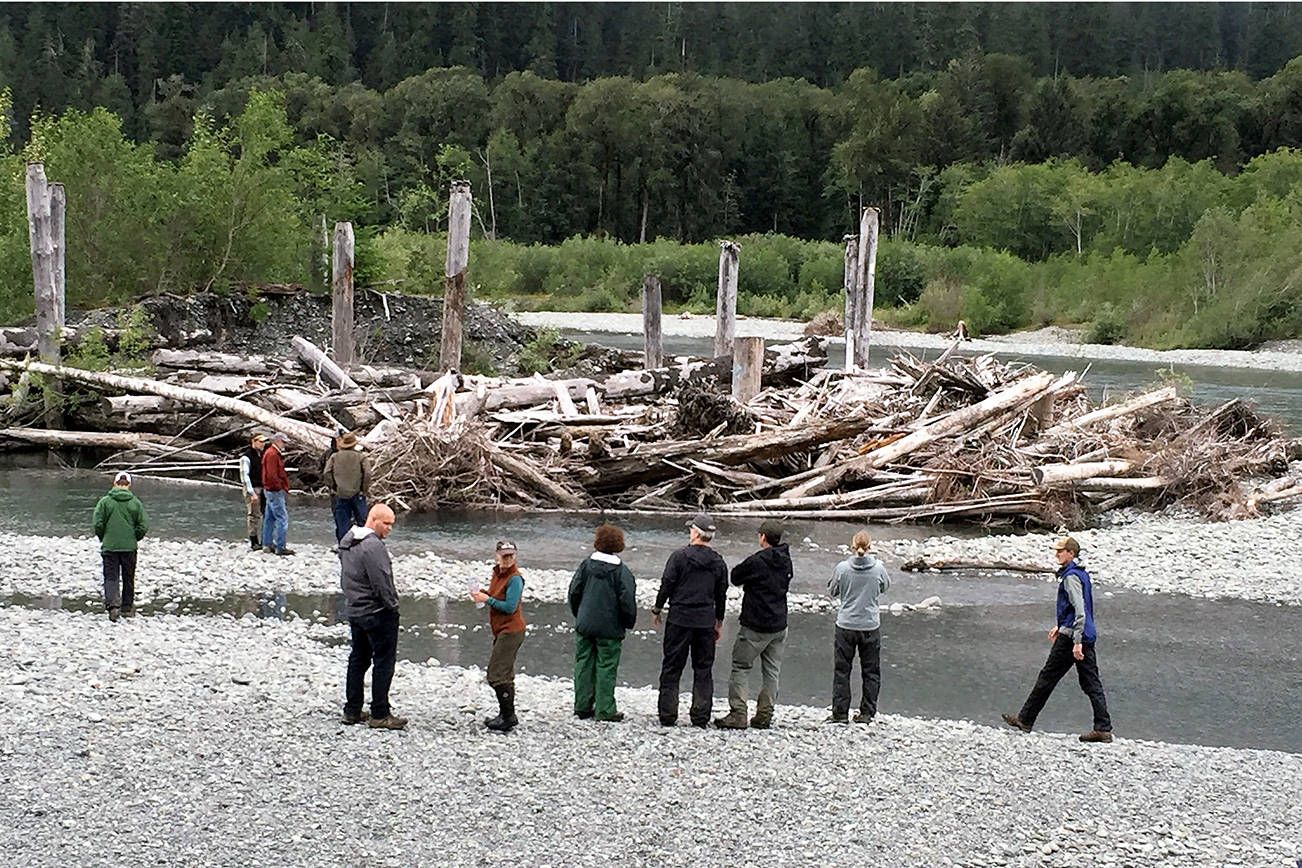A tour of salmon habitat projects being done by the Quinault Indian Nation on the Queets and Quinault rivers will be conducted by the tribe June 22.
“We’ll be visiting several upper Quinault River restoration project sites and a proposed reed canary grass treatment site,” said Bill Armstrong, Habitat Management Scientist and Lead Entity Coordinator for Quinault Indian Nation. If time allows, the tour may also take in an off-channel pond habitat site. These are sites that support salmon species that are connected to, but outside, the main tributary. Reed canary grass is a fast-growing non-native plant that can clog up waterways and take over the native plants on rivers all along the west coast.
The state Department of Ecology has split the state’s watersheds into 62 Water Resource Inventory areas. The Queets-Quinault Watershed, located on Washington’s north coast, consists of the Queets, Quinault, Moclips and Copalis Rivers, and many additional tributary creeks and streams.
“This is an opportunity for folks interested in salmon habitat recovery in the watershed to learn about salmon habitat projects being conducted or planned there,” said Armstrong. “It’s also an opportunity to provide input or have questions answered regarding these efforts.”
Free shuttles will depart for the tour from the Lake Quinault Lodge at 10 a.m. and return about 2:30 p.m. Participants should bring a sack lunch and dress appropriately for the weather and some potentially muddy conditions. Water and light snacks will be provided.
A public meeting will be held 7-9:30 p.m. in the Lake Quinault Lodge that evening and will feature presentations from the tribal salmon habitat recovery team as well as other government and non-government organizations. Coffee, water and cookies will be provided.
All are welcome to attend. Because space is limited, the tribe would appreciate an RSVP called or texted to Steve Robinson at (360) 951-2494, or emailed to Water4fish@comcast.net.


